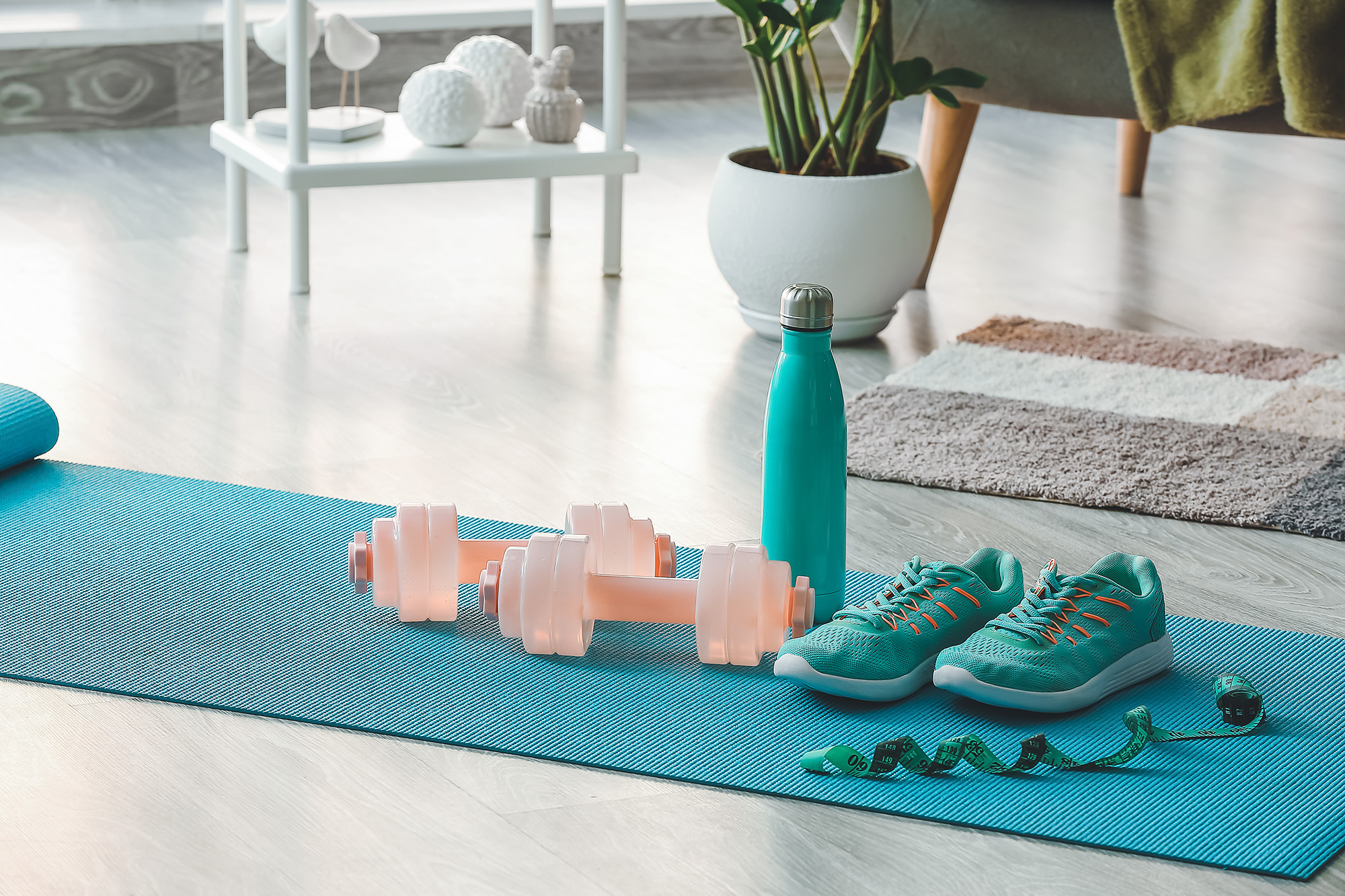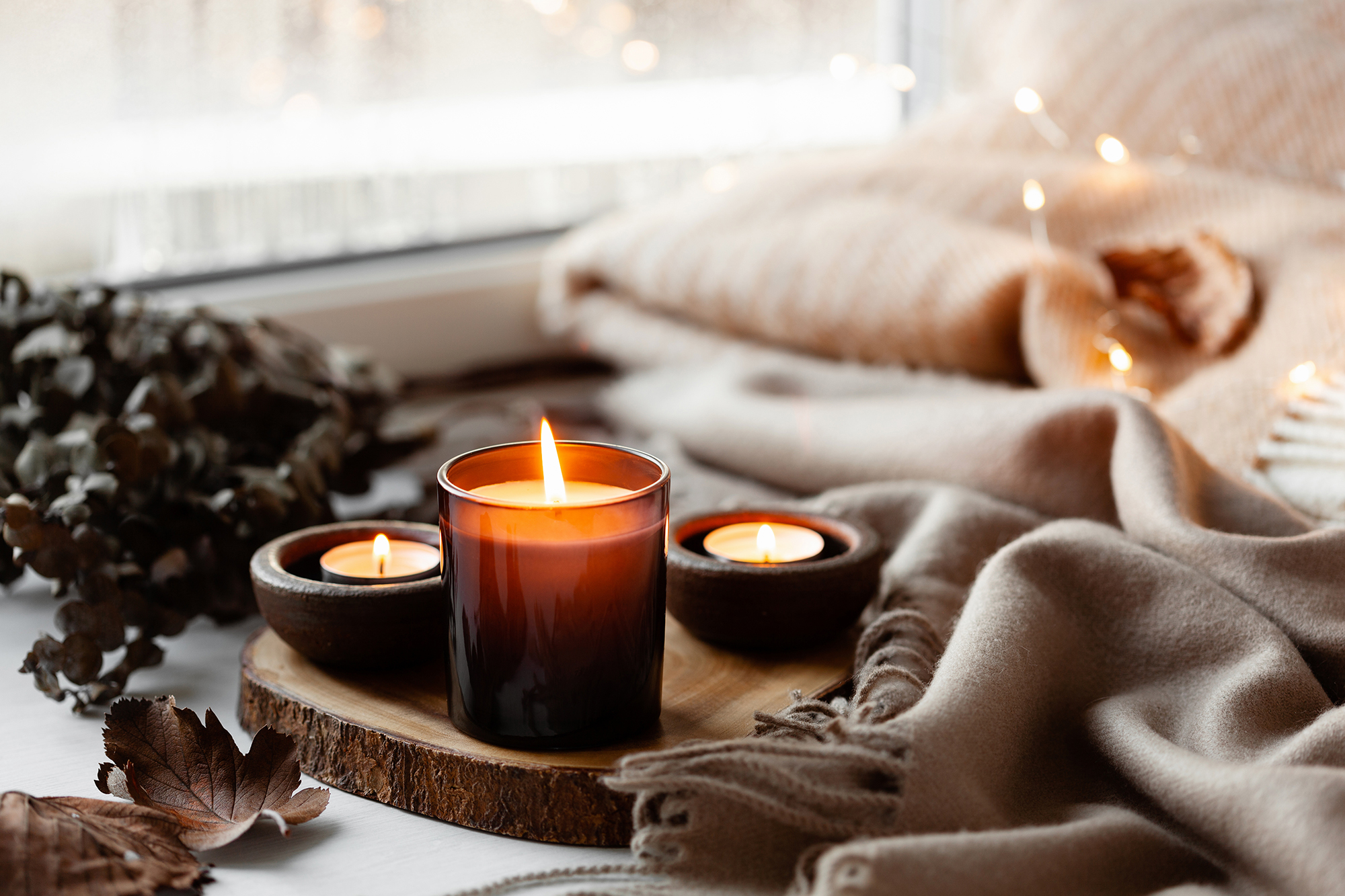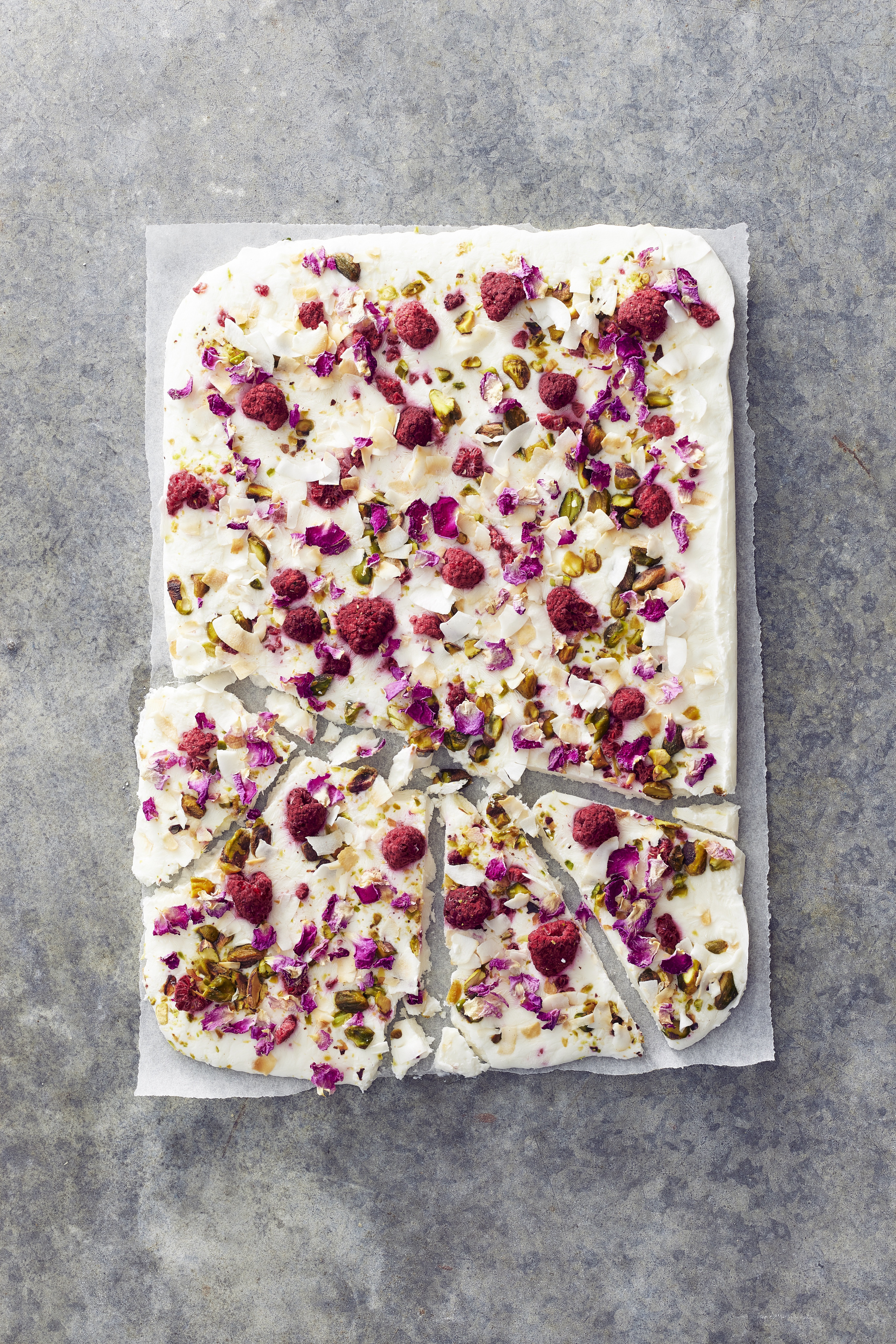I’ve always loved the winter months – that snap of crispness in the air, the soft drizzly rain, the excuse to stay inside with my stack of books. Although it can be dispiriting getting up in the dark and no one likes being cold, I think there are lots of compensations.
But winter can be a tricky time to stay well. There are ills and chills about, it’s depressingly grey and it’s easy to let things like a healthy diet and outdoor exercise slip. Even more importantly, winter can be a time when your mental state dips, with the dark and cold leaving you less cheerful and less motivated. So how can you tackle the winter blues?
Body
Eat well
Who feels like eating salad in winter? Not me, that’s for sure. It’s all too easy to let go of healthy eating habits in the colder months, especially with the temptations of sticky date pudding, creamy curries and saucy pies to contend with. But getting ample nutrients during winter is key.
Liz McNamara, naturopath and cosmetic chemist at HealthPost, New Zealand’s largest online wellness retailer, suggests embracing seasonality. Root veggies, pumpkin, dark leafy greens and brassicas all come into their own over winter, and they’re an excellent source of antioxidants, vitamins and fibre. Plus, they lend themselves well to winter cooking.

“It’s such a lovely season for heart-warming food,” says McNamara. “Getting that slow cooker out, looking into recipes for soups and casseroles and bringing colourful vegetables into dishes to ensure you’re getting the nutrients you need… winter is such a beautiful time of year for food. What’s in season is just so right for making warming, nourishing food.” Eating seasonally – and locally, where possible – means you’re getting the very freshest produce, so your body can absorb the maximum nutrients. Plus, it’s eco-friendly: eating food grown nearby saves on travel miles and refrigeration.
In winter, it’s also key to choose warming foods. When it’s cold outside, we naturally gravitate towards foods which raise our internal temperature – and we shouldn’t ignore that instinct, says Ayurvedic practitioner and director of Sattva Soul Retreats and Sattva Soul Supplements, Celine Wallace.
“Winter is kapha season, cold and chilly with a lot of moisture,” she says. “To combat that, it’s important to eat foods that are warming and grounding, like warm bread and butter, soups, oats, curries, hot teas and drinking room temperature water, not cold water. Basically, to focus on things that balance the body by reversing the external coolness of our environment.”
Choosing warming cooked foods and beverages can help balance out slowed digestion over the cooler months. McNamara adds that another way of choosing warming foods is to break out the spices – perhaps with a homemade chai mix – which give you an antioxidant hit and make your house smell amazing.
Winter is also a time to choose foods that support brain function, given our mental health can naturally plunge over the darker months. McNamara suggests focusing on healthy fats, which make up a large percentage of our brain’s physical components: go hard on oily fish, nuts and seeds. Meanwhile Lisa Walker, clinical manager and lead researcher at holistic health company BePure, recommends upping your protein intake to support healthy neurochemical production.
“The production of our ‘happy neurochemical’ serotonin depends on tryptophan, an essential amino acid or protein ‘building block’,” she explains. Foods high in tryptophan include meat, fish, eggs, nuts and seeds – but oats, chickpeas, bananas and even dark chocolate contain some of the crucial amino acids. Prioritising your gut health should also be a focus, with most of the production of serotonin and about half that of other happy neurochemicals, like dopamine, taking place in your gut.
Finally, Walker stresses the importance of getting key nutrients. B vitamins, for instance, are “crucial across the board when it comes to how we feel day to day,” she says. The best dietary sources of B vitamins are dark leafy green veggies, in season now. Otherwise, make sure you’re keeping your magnesium, zinc, selenium, iron and potassium levels up. Foods like cacao, citrus fruits, Brazil nuts, seafood and blueberries (frozen are good out of season) are all great additions to a “mood-boosting” diet.

Move your body
As the days get colder and shorter, exercise can easily fall off your radar: it’s hard to go for a walk if it’s raining. But getting regular exercise is incredibly important for staying healthy and happy. Not only does it improve your sleep, boost your energy levels and build muscle strength and cardiovascular health, endorphins from exercise can also help manage stress and anxiety.
With that in mind, it pays to winter-proof your exercise routine. How? McNamara suggests making exercise a social activity. “Exercising alongside friends, or even in groups, can really help,” she says. “Having other people hold you accountable can just provide that extra push you need to get out the door.” Alternatively, if you have the space and means, consider setting up a home gym. Rent or borrow cross-trainers or exercycles just for the winter months, invest in a few weights or simply download a fitness app to access home workout ideas, so there’s not the difficult step of ‘leaving the house’ built into exercise.
If you haven’t got the space or means for a full-blown home gym, educate yourself on bodyweight routines! There are plenty of ideas on YouTube, requiring nothing more than a patch of floor and your own bodyweight to get you sweating.
Most importantly, remember that any exercise – even if it’s a 15-minute clip around the block – is better than none. “We have evolved in history to spend most of our time moving outside, honouring our circadian rhythm and the seasons of the year, so it’s important to honour your biology and move your body every day!” says Wallace. “It doesn’t need to be done with a fancy gym membership or elaborate workout plan – just showing up for your body in a way that feels kind to you, whether that’s yoga, a walk or a gym class with friends. In Ayurveda, we also recommend different types of movement according to your doshic imbalance.”
She adds that it’s best to exercise in the morning, when your body naturally produces the stress hormone cortisol and you have energy; exercising at night can disrupt your wind-down to sleep.

Sleep tight
Unsurprisingly, when it’s dark and cold, we tend to sleep more on average. But during winter, it’s important to maintain a healthy sleep cycle to keep the blues at bay.
As Walker notes, some researchers have found that disturbances in our sleep-wake cycle can be linked to depression. That means it’s important to get enough sleep, but also not to get too much – to make sure you’re getting out and about during the day, and that you’re out in the daylight. To get the balance right, Walker reminds letting your sleep cycle be dictated by light. Wake with the sun to boost your natural serotonin levels, and ensure you go out in the daylight, especially during the morning. It’s also important to go to bed around the same time each day, so your body can develop a routine.
As Wallace adds, “Having set wake and sleep times helps give your body pillars to create a healthy framework for each day.” She recommends hitting the hay by 10pm for an optimal routine – but of course, you know how your body functions best. The key is to listen to it, and create a regular sleep pattern.
There are plenty of other benefits to getting out in the sunshine, too – including boosting your vitamin D levels (which are essential for both physical and mental health) and generally boosting your mood. As clinical psychologist Gaynor Parkin explains, “When you’re out in the sunshine, it just makes you feel better, brighter, more hopeful. So if we’re thinking about winter as potentially a time when we hit a bit of a slump, getting out in the sun is a good way to beat that.”
Parkin adds that for an optimum sleep routine, you should keep naps to a minimum. “Naps that are less than 20 minutes can be helpful to boost our energy, so if it’s a winter afternoon and you’re feeling a bit sleepy, it’s all good to curl up on the sofa for just a few minutes,” she says. “But don’t let yourself sleep longer than that, or you’ll go into a much deeper sleep, which then interrupts your natural sleep rhythms at night.”

Boost your immune system
Winter is the peak season for colds and flus – and, of course, Covid. To arm your body against the onslaught of ills, prioritise boosting your immune system.
One of the best ways to do so is to stock up on vitamins, especially vitamin D, which you usually get from the sun and may naturally have lower levels of during winter. Vitamin D can be found in oily fish such as salmon and tuna, eggs, lean meats and dairy – but you could also investigate over-the-counter pills and sprays, depending on your needs. If you’re worried about your vitamin D levels or you find yourself feeling particularly tired and down during winter, do visit your GP.
Walker also suggests doubling down on other immune-boosting nutrients, such as vitamin C and zinc, which are naturally found in warming winter dishes from beef stew to seasonal root veg.
Beyond upping your vitamins, health experts recommend washing your hands regularly, staying home if you’re sick to spare other people your germs and getting your flu jab (and Covid booster, if you’ve not already had it). All these steps will give your immune system a leg-up when it comes to fighting off sickness.
Finally, your immune system thrives off rest. Fighting off an infection costs your body a lot of energy, so for the best chance of staying well, make sure you get your downtime. Additionally, as Walker notes, having enough downtime to balance the “all-go” nature of modern life not only helps our body to rest, digest, rejuvenate and repair, it’s also very important for mental wellbeing.
So snuggle up with your hot water bottle and a soothing cup of chai – winter is a time to slow down where possible.

Mind
Ward off SAD-ness
We’ve all heard of seasonal affective disorder (SAD), a form of depression that hits sufferers in winter. But Parkin warns that there’s currently debate among experts as whether SAD is a distinct phenomenon. “Many experts argue now that we should more accurately describe what’s been known as SAD as ‘recurrent depression with a seasonal pattern’,” she explains. However we label it, feeling less than your best come winter is a problem for many, and Parkin says it’s important to seek help should you need it.
The signs of seasonal depression are much the same as any kind of depression, she notes, encompassing shifts in a person’s physical, mental and emotional wellbeing. Common symptoms include sleeping too much or not enough; overeating or losing your appetite; feeling less motivated or energetic, especially if you’re normally busy and active; finding that your memory and concentration aren’t as good; struggling to get pleasure out of things you usually enjoy; and generally feeling a bit blah.
“The tricky thing is that most of us would notice some of these symptoms in the wintertime anyway, so what’s normal and what’s more of a concern?” says Parkin. “The rule of thumb we use as psychologists is if it’s interfering with your ability to live your life, you should seek help. If you’re feeling blah but it only lasts a couple of days and you’re still able to do your job and look after your kids, that’s not such a problem. But if you can’t do your job or you’re getting into your second or third week of feeling blah, we’d want people to get some help.”
What causes seasonal mood slips? Walker says there are several major theories, including a dip in serotonin and insufficient vitamin D levels, both likely caused by a drop in sunlight hours.
Both she and Parkin suggest getting outside to combat low wintertime mood. “Getting out in the sunshine is so important, particularly to boost our vitamin D levels,” says Parkin. “We know that in New Zealand, some people don’t get enough vitamin D because we’re all so careful now about UV – but it’s incredibly important for our physical health and mental health.”
Walker adds that it takes just half the time you need to burn to get good vitamin D absorption, so getting your skin in the sun for just a few minutes before you slip, slop, slap and wrap is okay. It’s also useful to get a daily dose of sunshine during summer and early autumn, when sunlight hours are longer, to boost your vitamin D stores before winter.
A key part of beating SAD is also to cultivate a restorative, active lifestyle that helps you manage stress effectively and sleep well, says Walker. “The more stressed, tired and burnt out we are, the more likely we are to experience lower moods,” she explains. Instead, set yourself up for success with a regular, healthy routine and lots of built-in downtime.
“Stress management techniques such as daily exercise, meditation, regular sleeping patterns, mindfulness, yoga, relaxation, massage, mirimiri and acupuncture have all been shown to have some effect in alleviating mental distress and boosting our mood,” Walker says.
Finally, seek out help if you need it. If you’re feeling blah, reach out for support from a friend or family member – and if you think you might need a little more help, don’t hesitate to contact your GP or another healthcare professional. “Our message really is not to ignore feeling bad,” says Parkin.

Yoga and meditation
We’ve said it before and we’ll say it again: a practice that helps you slow down and reground yourself in your body should be part of your regular routine. Not only do they have physical benefits, like slowing and regulating your heart rate, yoga and meditation are brilliant for balancing your mental state and managing stress.
Wallace swears by a daily hit of meditation. “Our life experience is truly created by the quality of our thoughts, so we need to cultivate those thoughts,” she says. “Meditation is a great way to instantly pivot if you’re out of alignment or to lift your vibration and mood at any given moment.” Yoga, meditation and, for Wallace, Ayurveda, all form anchors to deal with the craziness of everyday life – and they could do the same for you. “We need rituals that help us calm and slow down the noise of our monkey mind and check back in with ourselves,” she says. “Practices that re-establish that mind-body connection and create stillness are critical for a healthy and high-quality life.”
She recommends taking a bit of time every day to check back in with your thoughts and slow down – as well as practising yoga. In winter, Wallace suggests focusing on heat-building yoga movements to compensate for the cold weather: try starting your practice with a bit of Surya Namaskar before moving onto Vinyasa. She also recommends wearing bright clothes and listening to uplifting music while you practise, to boost your mood.
Even if you’re not big on yoga or meditation, taking some daily time out for yourself during winter can be invaluable. If a downward dog doesn’t
do it for you, what about a long, hot bath? Whatever it is, try to take your time, perform the activity consciously and check in with how you feel.

Change your space
We naturally spend more time indoors in winter. But it can get a bit stale sitting in the same environment every day – so why not change it up?
To keep your home feeling fresh, try rearranging your furniture. You could bring items closer to windows, which both helps retain heat in a room and means you’ll get more light on you face when sitting there. As we cover on page 58, it can also help to change your décor slightly to fit the season – introduce warm colours into rooms to make them feel cosier, bring out the wool throws, thick socks and flannel sheets and crank up the fireplace. Toasting marshmallows and drinking hot tea are not optional, either. It may not get as icy in New Zealand as it does in Scandinavia during winter, but you can still bring a little hygge into your home over the cooler months.
Otherwise, make sure you ventilate rooms by opening windows when it’s not too cold or wet, to improve indoor air quality and discourage mould and mildew growth.
Of course, it’s good to “change your space” in another sense, too – by getting outside. Whenever and wherever you go, even if it’s just to the back garden, getting a bit of outdoor time is really healthy, balancing out all those indoor hours and giving you a fresh perspective.





